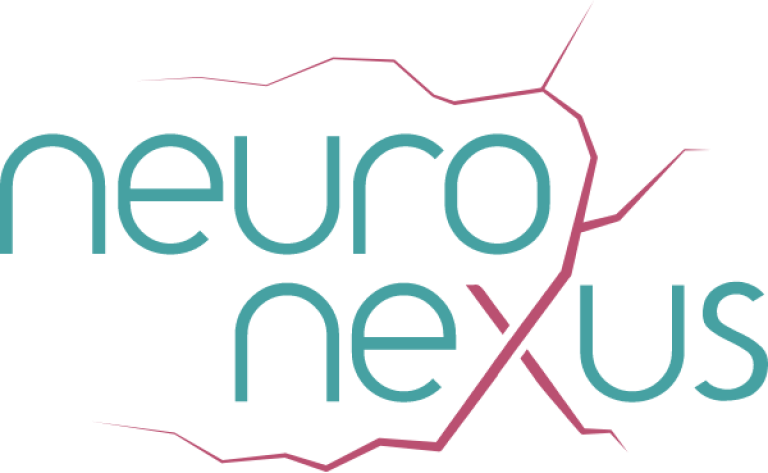iGaming's Social Impact: Benefits of Responsible Gambling

As someone deeply involved in the iGaming industry, I’ve seen firsthand the positive and negative effects gambling can have on individuals. Over the years, the conversation has shifted from just offering entertainment to focusing on responsible gambling—an approach that ensures players can enjoy the thrill of the game while safeguarding their mental well-being.
Whether you're a seasoned high-roller or a newbie just dipping your toes into the thrilling world of gambling, it's important to remember that the betting game isn't just about winning big or losing hard. It's also about playing responsibly, and that's where the true fun and excitement lies. Responsible gambling isn't just a buzzword thrown around by casinos to make themselves sound more legitimate—it's a legitimate practice that has far-reaching social and economic benefits.
Let's face it, gambling has been part of human society for a long time. It's a pastime that brings people together, stimulates the economy, and, when done responsibly, can be a rewarding hobby with its own set of perks. But more importantly, the benefits of gambling go beyond the individual level—they can also positively impact entire communities and society as a whole.
In this article, we'll explore how responsible gambling is essential for mental health, the social benefits it fosters, and how neuroscience plays a role in this transformation.
The Social Benefits of Responsible Gambling
With responsible gambling, the social benefits are as clear as a royal flush in poker. When people gamble responsibly, they're not just engaging in a fun and exciting pastime—they're also fostering a sense of community. Think about it: casinos, whether land-based or online, are places where people gather to share a common interest. It's a place where friendships are formed, where stories are shared, and where bonds are strengthened.
By encouraging responsible gambling, more people can enjoy the thrill of placing a bet without worrying about the potential negative repercussions. There's a sense of camaraderie that comes with knowing that everyone around you is playing by the same rules, and that sense of community can go a long way in promoting social cohesion and unity. So, the next time you're considering engaging in this pastime, why not try an online casino that accepts prepaid Visa? It's a great way to manage your gambling budget responsibly while enjoying the fun and excitement of playing your favorite casino games.
At its core, iGaming is about entertainment. Platforms create exciting environments where players can connect, compete, and enjoy themselves. But without responsibility, gambling can lead to negative consequences, both financially and emotionally. Responsible gambling practices ensure that the fun doesn’t come at the cost of a person’s well-being.
When done right, iGaming can provide several social benefits:
- Fostering Community: Shared interests in games build connections and friendships.
- Healthy Competition: Players engage in friendly rivalry, which boosts engagement.
- Celebrating Success Together: Wins are celebrated as a community, enhancing the social experience.
- Supportive Networks: Players share strategies, experiences, and advice, ensuring a responsible approach to gaming.
It’s all about balance. Just like with any other form of entertainment, gambling can be a healthy part of one’s social life when practiced responsibly. Operators play a crucial role in this, offering tools that help players manage their gambling habits and encouraging them to take breaks when necessary.
Responsible Gambling and Economic Development
Responsible gambling doesn't just bring people together—it also has a positive impact on the economy. The gambling industry is a significant contributor to the economy, providing jobs, generating tax revenues, and attracting tourists. But with responsible gambling, the economic benefits can be even greater.
How so? Well, when people gamble responsibly, they're more likely to continue gambling. It's the sustainable and long-term approach to this pastime that ensures its survival and growth. And when the gambling industry thrives, it stimulates economic development, creating jobs, boosting tourism, and generating greater tax revenues. It's a win-win situation for everyone involved!
So there you have it. The benefits of gambling go far beyond the personal level, reaching out to touch communities and economies alike. So why not jump in, play responsibly, and contribute to the greater good?
Innovations in Promoting Responsible Gambling
The iGaming industry has made significant strides in promoting responsible gambling, thanks in large part to technological advancements. I’ve seen platforms evolve from offering basic self-exclusion features to providing comprehensive responsible gambling dashboards, where players can set personal limits, track their gambling habits, and receive personalized notifications when their behavior shifts.
Some platforms also use machine learning to assess players' risk levels, identifying patterns that might indicate problematic gambling before it becomes a severe issue. By using AI, companies can tailor their interventions to each player, offering targeted support and recommendations.
These innovations not only protect players but also reflect the growing commitment within the industry to prioritize mental health and well-being. It’s not just about keeping the games safe—it’s about creating an environment where players can thrive without risking their emotional or financial stability.
Economical Aspect
As paradoxical as it might seem, there are substantial advantages of gambling when done responsibly. One of the primary benefits of well-regulated gambling is its significant contribution to economic growth. This happens through:
- Tax Revenue: Gambling generates much-needed revenue for governments, reinvested into public services.
- Job Creation: Gambling establishments offer employment in hospitality, security, and administration sectors.
- Economic Contributions: Employees contribute to the economy through spending and taxes, fueling local development.
Responsible gambling, when well-regulated, stimulates economic growth while benefiting communities.
Neurobiological Aspects of Gambling and Mental Health
The intersection of gambling and neuroscience is a fascinating area. Gambling activates the brain’s reward systems, which release dopamine and create feelings of pleasure. While this can be enjoyable, the potential for addiction arises when the brain becomes dependent on these dopamine hits, leading players to gamble more frequently or with larger sums in search of the same rush.
Research into the neurobiology of gambling addiction has helped us better understand these processes. From my perspective, seeing how scientific insights into brain activity have influenced the development of responsible gambling tools is a game-changer. By leveraging research in neuroscience, iGaming companies can design interventions that help regulate these reward responses, minimizing the risk of addiction.
For instance, some platforms now incorporate AI-driven behavior analysis to detect when a player is displaying risky gambling patterns. These algorithms analyze gameplay and send warnings when limits are being exceeded, encouraging players to take breaks or reduce their spending. The role of neuroscience in shaping these technologies is a clear example of how innovation can create a safer, more responsible gambling environment.
Mental Health and Responsible Gambling
Mental health has increasingly become a focus in the iGaming world, and for good reason. Gambling can activate the brain's reward systems, which can be both thrilling and potentially harmful. When overstimulated, this can lead to addiction, anxiety, and stress. From my experience, I’ve seen players struggle with balancing their gambling habits, often chasing losses or using gambling as an emotional escape.
To mitigate these risks, responsible gambling practices include:
- Self-exclusion: Players can opt to temporarily or permanently restrict their access.
- Time Limits: Platforms offer the ability to set daily or weekly gaming limits.
- Financial Caps: Players can limit the amount of money spent within a given period.
How to Maintain Self-Control:
- Utilize Self-Exclusion: Request a temporary or permanent break from gambling if habits become overwhelming.
- Set Time Limits: Make use of built-in tools to restrict the amount of time spent on gaming sessions.
- Implement Financial Caps: Define strict spending limits to avoid excessive losses.
- Seek Support: Access hotlines and support networks if gambling behaviors start to feel unmanageable.
These tools, along with transparent risk communication from operators, help players make more informed, healthier decisions regarding their gambling habits.
Responsible Gambling: Fostering Community Cohesion
On a more interpersonal level, responsible gambling can foster a sense of community. The social nature of many gambling activities - from bingo halls to poker nights - creates opportunities for social interaction, establishing friendships and promoting a sense of belonging.
This community spirit isn’t just confined to the physical world. In this digital era, online gambling platforms have harnessed the power of technology to create virtual communities, where players can engage and interact with each other. This highlights the $extraanchor on social cohesion and community spirit.
The Role of Technology in Promoting Responsible Gambling
Modern technology has a pivotal role in promoting responsible gambling. From digital platforms implementing self-exclusion features and betting limits, to advanced algorithms proactively identifying potential addictive behaviour, technology serves as a vital tool in the pursuit of responsible gambling.
Moreover, with the rise of virtual reality and augmented reality, the gambling experience can be made more immersive and entertaining, while still promoting responsible behaviour. This combination of fun and responsibility helps in creating a balanced gambling ecosystem that benefits both the individual and society.
The Positive Impact of Responsible Gambling on Society
In conclusion, when practiced with restraint and awareness, gambling can indeed be a source of entertainment that concurrently generates economic and social benefits. The advantages of gambling responsibly are multifaceted, ranging from contributing to economic development to fostering community cohesion.By incorporating mental health and neuroscience research into the design of platforms, operators are creating environments that prioritize player well-being.
The social benefits of responsible gambling are clear: it builds community, fosters healthy competition, and allows people to enjoy games without fear of addiction. With ongoing innovation in technology and a deeper understanding of the neurobiological effects of gambling, the future of iGaming looks brighter and safer for everyone.
But the work isn’t finished. The collaboration between iGaming companies, mental health professionals, and neuroscience researchers is crucial in maintaining the balance between fun and responsibility. By continuing to prioritize responsible gambling, we can ensure that iGaming remains a positive force for entertainment and social connection.
Become an Ally
Neuro Nexus catalyzes innovation for brain science, neurological disorders, and mental health conditions.
Projects undertaken during the program help researchers, clinicians, community professionals and industry members de-risk an idea and connect with top talent, and empower young innovators with rare experiences to work on meaningful projects and hone much needed 21st century skills. Teams and project outcomes are tracked and proudly shared as they graduate into the ecosystem and begin to make their impact.
Partnering with us plants an image of who you are and what you have to offer in the minds of software developers, engineers, scientists, doctors and entrepreneurs as they begin their careers.
